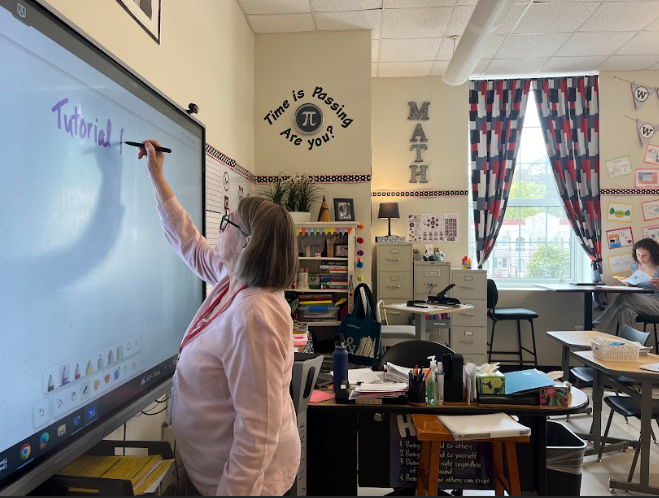
At first glance, the Little Middle School might not be recognizable as a school at all: the small, three-story building on 17th Street looks like any other house in Ansley Park. Nevertheless, passersby witness the steady flow of backpacked students entering the building every weekday morning. In total, the school’s students could fit inside a typical middle school classroom.
According to the state of Georgia, these children are registered homeschoolers. Despite this, they spend their weekdays not at home, but at work in the small building usually simply referred to as “LMS” or “Little Middle.”
“I would say Little Middle is the exact opposite of a traditional learning environment in very, very many ways,” said Alyssa Andres, one of the school’s instructors.
It’s true that Little Middle takes a unique approach to education. Many students complete assignments on personal laptops; the school also provides tablets and e-readers for students’ use. Students can choose from a number of work stations, including tables, chairs, standing desks and beanbag chairs. Every part of the school day centers around individualization and student-based, self-directed learning.
“In a public school, if you want to have a special accommodation, you have to have an Ed Psych [educational psychology] evaluation that can cost thousands of dollars,” said Casey McCann, who founded the Little Middle School in 2012. “We try to take the approach that everyone has an Individualized Education Program—that it isn’t something that only people [on the] outside of the bell curve need.”
McCann is also the founder of Eclectic Music, a music school she created in 2002. Eclectic Music currently teaches several hundred students of all ages in three studios, one of which shares the building with Little Middle.
“I love working with kids,” McCann said. “I’ve worked as a music teacher with all ages, from babies all the way to adults, but I particularly love working with middle school students because of the dramatic changes they go through in such a short time.”
McCann first conceived of the Little Middle School as she observed the controversy surrounding the Atlanta Public Schools redistricting during the 2011-2012 school year.
“I felt like I wanted to contribute a solution,” McCann said.
As that school year came to a close, McCann began to contact others with a proposal—taking advantage of Georgia’s liberal homeschooling laws in order to create a place where students could come to learn while registered as home-schooled with the state.
“I had a pretty good network of parents through Eclectic Music, and I started emailing people, parents with rising middle schoolers, asking if they knew anyone who would be interested,” McCann said.
One of the parents McCann reached out to was Meg Cocroft, who had homeschooled her daughter, Laura, before transferring her into fourth grade at Morningside Elementary when their family moved to the Midtown area.
“We had really enjoyed homeschooling because Laura could work at a faster pace, and she wasn’t bound by the constraints of what the other kids in the classroom were doing,” Cocroft said. “When Casey approached me with the idea that she might be doing a homeschool co-op, I was all for Laura being a part of it.”
“If the initial interest had not been there, I would have just tucked the school back into my list of crazy ideas,” McCann said. “But because the initial interest was significant, it gave the project a lot of momentum.”
Just two weeks after McCann began explaining her vision, six families had expressed serious interest in the idea, and before the summer began, McCann’s hypothetical school was on its way to becoming a reality.
“I had some sleepless nights in May where I would just think, “What am I doing? This is crazy, I can’t start a school!’” McCann said.
By August 2012, 12 students had committed to attend, and the Little Middle School began its first year. Because McCann taught all of them and managed the school with very little help, she faced several challenges.
“The first year, I had this vision, but I didn’t have the resources to carry it out fully,” McCann said. “I was just learning as I went.”
The next year, McCann hired an assistant; for the third year, she brought in a full teaching staff, and the school began incorporating rotating schedules and more structured work periods into its daily routine.
“It was a total failure,” McCann said. “We hated having that much structure. So we tweaked it for the second semester, and made some changes. It was great to have more teachers contributing their expertise, but I felt a longing to go back to the way that it was the first year, when we had a lot of freedom, and the students understood how to motivate themselves to get work done.”
This August, Little Middle kicked off its fourth year with four full-time teachers and 21 students.
“Now we have just the right balance between structured work time, electives, group activities and lots of individual discretionary time,” McCann said. “I think that this is the year that we’re finally reaching maturity as a school, and it’s the most in line with the vision that I originally had. It’s taken lot of help to get there, and I’m really happy I have such a good team.”
Little Middle’s school day begins at nine in the morning and ends at two in the afternoon. Students gather for announcements in the morning, eat lunch at 11:30 and wrap up the day with an afternoon meeting. The school offers art and French classes each Tuesday; other rotating electives, which have previously included classes on handcrafts, leadership, and Rube Goldberg, vary from week to week. Andres currently teaches an elective she likes to call “handyman class,” where she helps students construct furniture for the school.
Outside of these structured activities, the rest of the students’ day is devoted to discretionary time—what a public school might call “study hall.” Each morning, teachers give each student a list of tasks to complete; for the rest of the school day, students can work on assignments as they choose. Teachers design students’ task lists individually, based on each child’s interests, skills and learning pace. Students are expected to complete assignments on time, but are free to decide how and when they do so.
“The kids get here anywhere between 8 and 9, but a lot of them are so motivated that they will start their work the minute we put out their task list for that day,” McCann said. “Today I put it out at 8:30, and a bunch of kids got into it right away.”
“We’ve had a lot of success with just watching our students get straight to work,” said Kyle von Neuman, who manages the school’s science and social studies curriculums. “We had a student come to us today and say, ‘I want to do two years of the math curriculum this year.’ And we have the freedom to do that here.”
Since students have total control over their daily schedules, they have the ability to choose when to take breaks.
“Sometimes, before I’ve finished all my tasks, I like to take a breather for a short amount of time, and then get back to my work,” said Gigi Fisher, a 6th grader starting her first year at LMS. “I really like how you can do something, and then if you need to, you can take a break.”
“Students can be really motivated to get their work done when they see the impact that it has on their own life,” McCann said. “They realize, ‘Oh, if I do this work now, I have no homework. Great!’”
Little Middle’s shorter school day and minimal homework give students a large amount of free time that most schools don’t offer.
“At LMS, you can usually get all of your work done at school,” said Benjamin Borthwick, a 7th grader starting his second year at LMS. “But say you do have some homework—you can usually finish it by four at the latest, which opens up the whole rest of your day.” Benjamin spends his afternoons practicing the cello, taking kung fu classes and preparing for his upcoming bar mitzvah.
Fisher noticed another benefit of the Little Middle School as soon as she arrived.
“On the first day, we went to the park and to the playground,” Fisher said. “When I told my mom, she was so surprised! She told me most middle schools don’t do that, and I was like ‘Really?’”
Students at Little Middle get a lot of fresh air—they frequently go for morning walks around the block, and often take trips to Winn Park, which is only about three blocks away from the building. The school is also within walking distance of the Atlanta Peachtree Library, which students visit regularly, as well the Woodruff Arts Center—home to the Alliance Theatre and the High Museum—and the Atlanta Botanical Gardens. The school’s proximity to these locations means that field trips are frequent and convenient.
“My friends that go to Inman [Middle School] tell me that they don’t really see outside much, and that they always have to stay indoors,” Fisher said. “I like how we get to go outside and take walks.”
Perhaps the most important distinguishing feature of the Little Middle School is its focus on creating an individualized curriculum based on each student’s needs.
“Everybody comes to school with a particular set of interests and skills and fears and hangups and strengths and weaknesses and work habits,” McCann said. “Why not figure out how to accommodate those in that situation?”
The other educators at Little Middle share McCann’s philosophy, applying it to their daily interactions with students.
“When you’re working with children, you have to realize that every child is different,” teacher Lauren Phillips said. “They have different strengths, and different things that they prefer or need when they’re working, and they’ll tell you, either in their manner, or the way they speak, or how they handle a certain exercise. Just being in tune with their responses to the work is important.”
Phillips primarily works with the language arts curriculum; she also teaches one of the school’s electives, a songwriting class.
“We really strive to just treat children as human beings,” von Neuman said. “We don’t condescend to them, we don’t talk down to them, we don’t dumb things down just because we’re talking to a child.”
According to McCann, this approach makes students much more willing to learn.
“Middle schoolers in particular have a real sense of appreciation for being treated like adults, or like people,” McCann said. “They really respond to that, and it’s really fun to see that. I try not to treat kids differently than I treat adults.”
Unsurprisingly, much of McCann’s ability to understand and communicate with children comes from her experience as a music teacher.
“I’ve worked with so many people and seen them go from kids to adults,” McCann said. “I have teachers working at Eclectic Music who I’ve known since they were ten years old when I taught them guitar lessons. It’s gotten easier for me to now look at a four-year-old and see in them the person that they’ll still be when they’re ten, 12,15, 20.”
Ms. Cocroft respects McCann’s skills as a teacher.
“Casey’s very invested in her students,” Ms. Cocroft said. “I think she really wants what’s best… Working with Casey for the last three years has just been great.”
Ms. Cocroft’s daughter, Laura, who graduated from Little Middle this spring, has returned to APS as a freshman at Grady.
“You worry about the transition from a small homeschool experience to a great, big, busy place like Grady,” said Ms. Cocroft. “But Laura seems to be really happy, and I think it’s worked out well.”
Laura said that adjusting to Grady has been challenging, but enjoyable.
“It’s been kind of stressful going from something as loose as Little Middle to going to something as structured as Grady,” Laura said. “But I don’t think it’s necessarily a bad thing. I feel like it will help me in the long run to learn how to deal with some structure. I just need to get used to it.”

Laura is one of three LMS graduates starting Grady this year. While she has the privilege of seeing her middle school friends throughout the day, she must adapt to classes full of strangers.
“I’ve been having to get used to being around so many people that I don’t know,” Laura said. “One of my favorite things at Little Middle was how close everybody was. We weren’t just friends, we were like siblings…We were a giant family.”
Laura said, however, that she finds her new environment exciting, not intimidating.
“One of the things I like about Grady is that while I don’t know that many people, that just means that there’s a lot more people to get to know,” Laura said. “There’s so many different groups of people, and you meet them in so many different ways. I’m really hoping to be on the debate team. I’m going to the HOSA meetings. I’m in the philharmonic [orchestra]…there’s so many different things to do.”
“Laura had a great experience at Little Middle,” Ms. Cocroft said. “I think from the very first year, things were done well. I think she learned a lot, I think she was challenged, I think she got a real sense of leadership, I think she learned how to use her voice, got a great education…Every minute was great. And now that she’s moved on to Grady and made such an easy transition, I think things are only going to continue to go smoothly.”
Back at Little Middle, McCann and her staff are starting another year, still hard at work at what they do best.
“Being an educator is so rewarding, all the time,” McCann said. “Working with kids keeps things fun, it keeps things interesting…you get so much positive reinforcement for the work that you do. It’s full of warm fuzzy feelings.”
A version of this article received a National Silver Medal and a nomination for the American Voices Award in the 2016 Scholastic Art & Writing Awards.

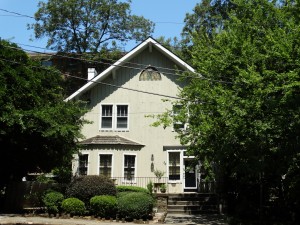
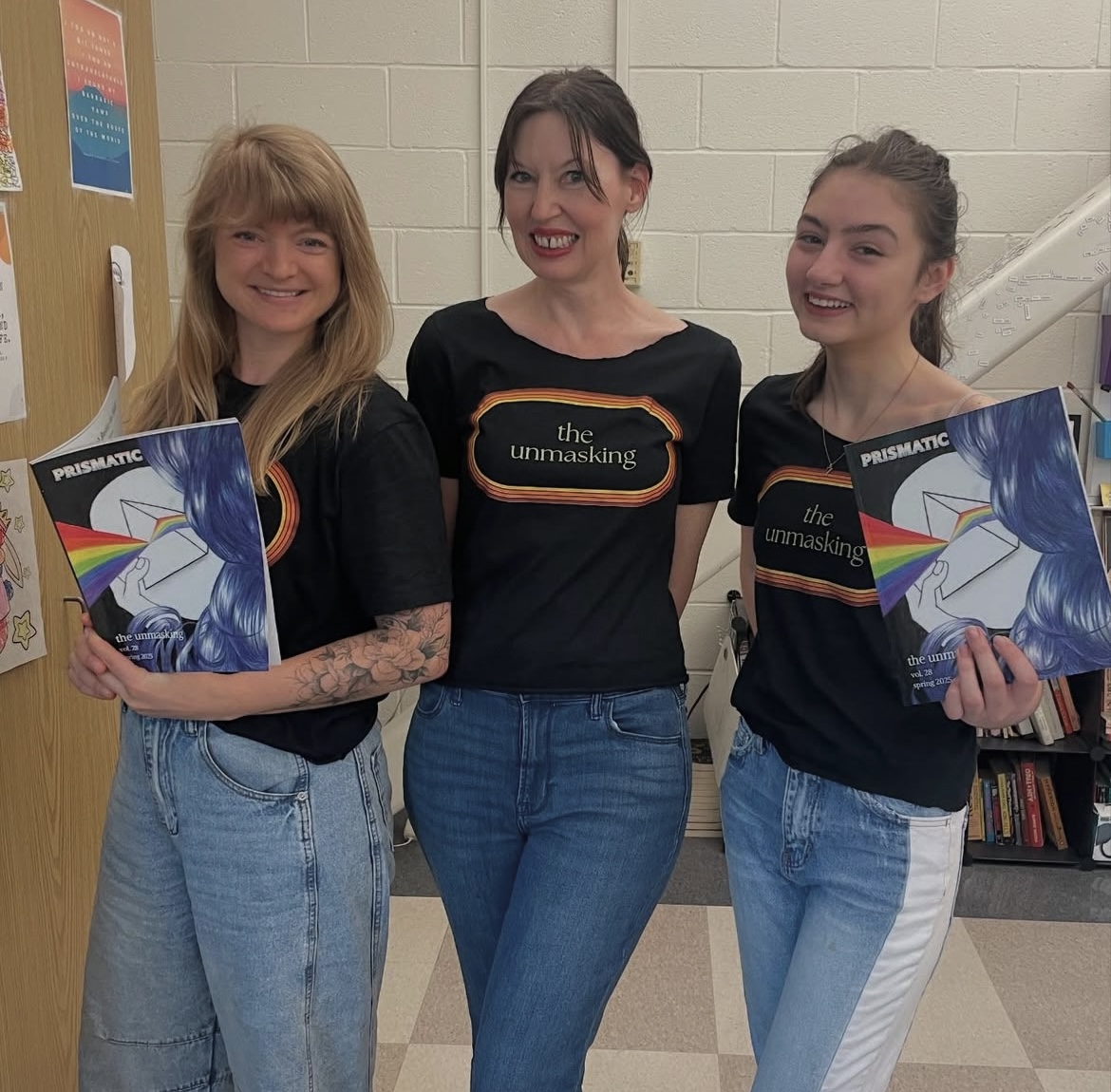
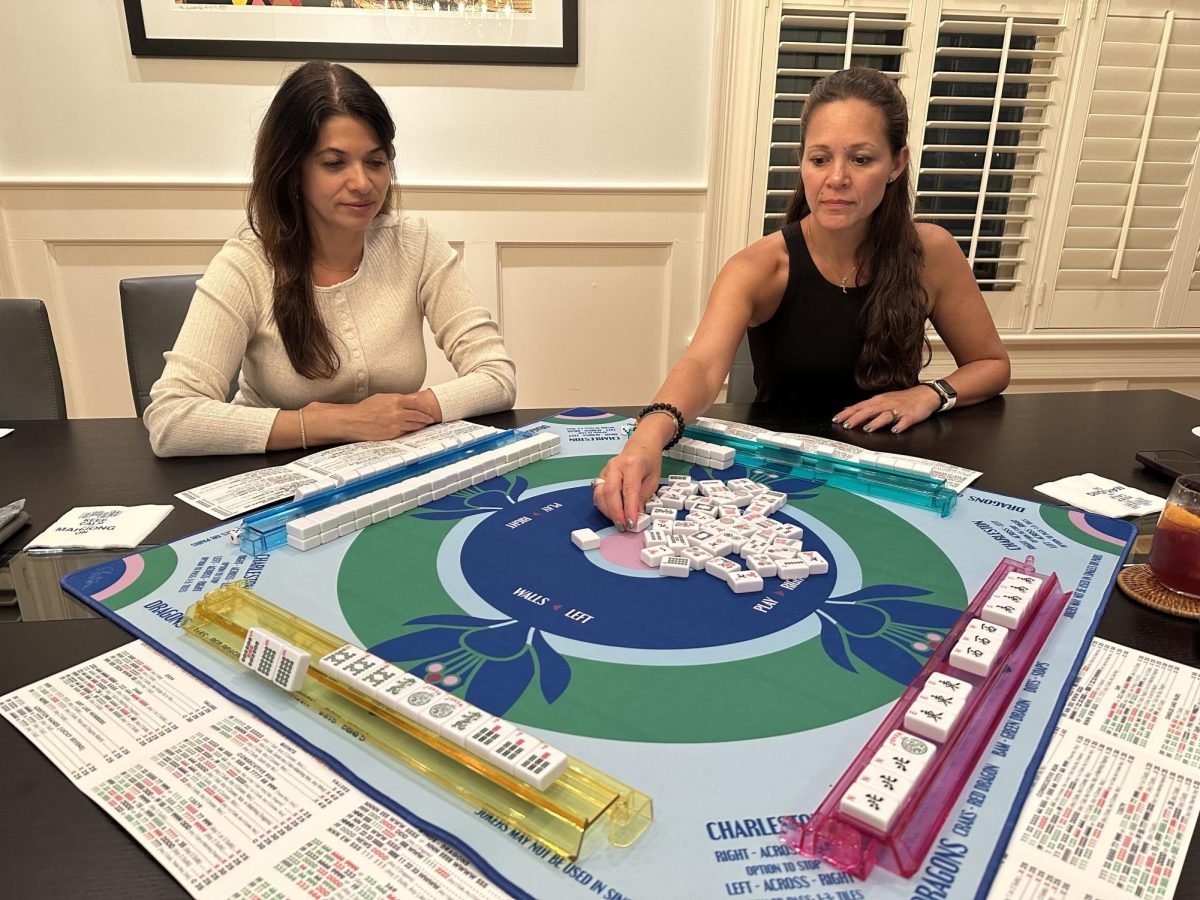
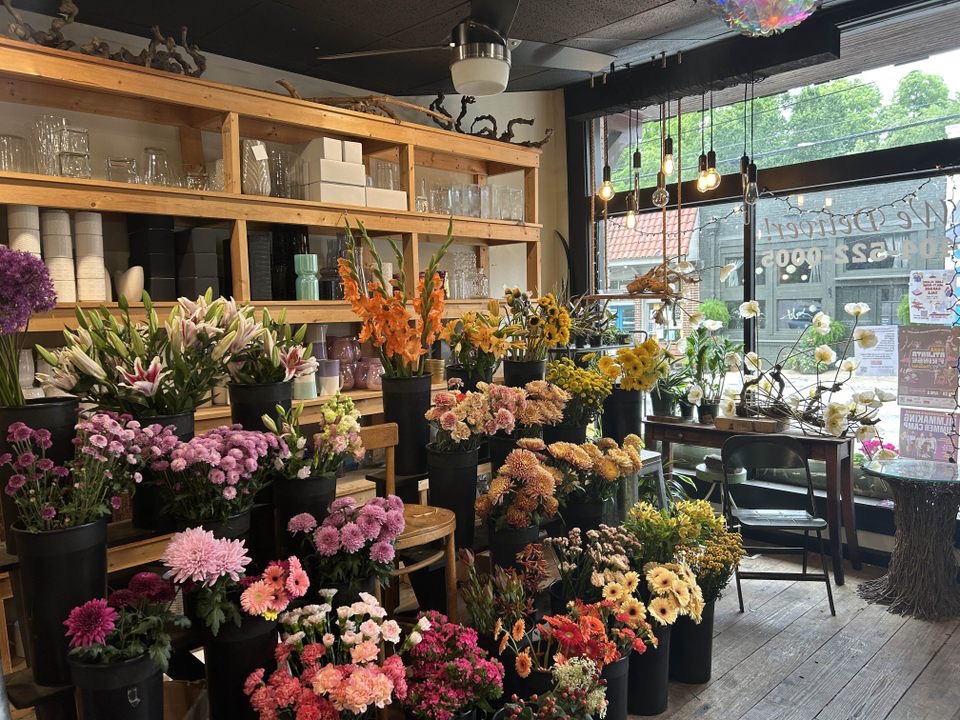

![STANDING STRONG: Hills4ATL founder A.B Bailey [left] leads workouts ranging in intensity every week, including hill climbs and yoga. Bailey believes that his workout classes bring together Atlantans of all ages for unique workout opportunities, as outlined from the beginning of Hills4ATL.](https://thesoutherneronline.com/wp-content/uploads/2025/05/hills-1200x800.jpg)
